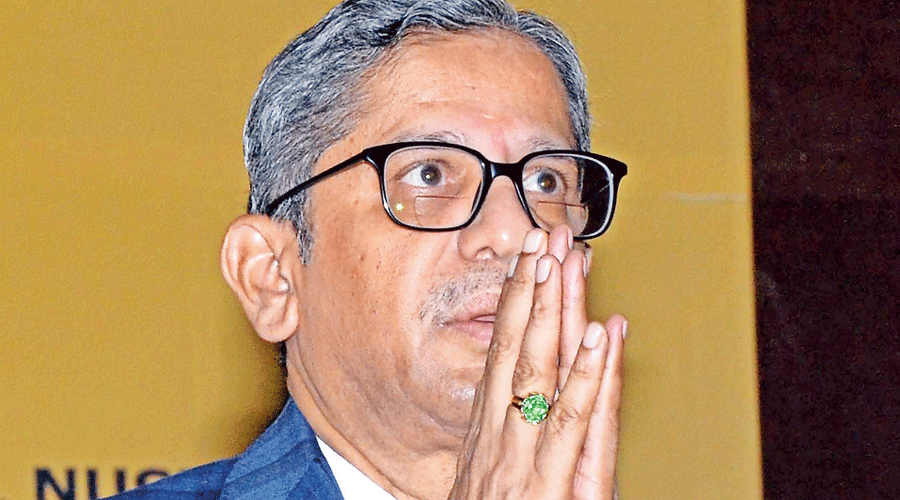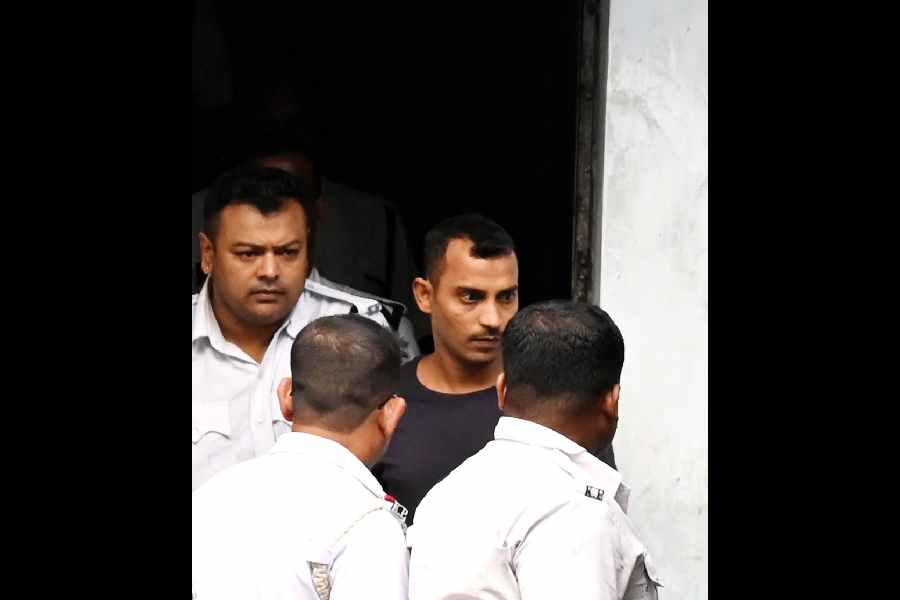Chief Justice of India N.V. Ramana on Saturday deplored the “concerted campaigns” against judges on electronic and social media, whose “kangaroo courts” and “agenda-driven debates” make it difficult even for experienced judges to decide issues, thus undermining judicial independence and democracy.
He said judges’ failure to “react immediately” should not be mistaken as “weakness or helplessness”.
He also highlighted how judges’ huge workload and responsibility tended to take a toll on their physical and mental wellbeing, and suggested that judges faced a threat from criminals and might need security even after retirement.
“Doing justice is not an easy responsibility. It is becoming increasingly challenging with each passing day. At times, there are also concerted campaigns in the media, particularly on social media, against judges. Another aspect which affects the fair functioning and independence of the judiciary is the rising number of media trials,” Justice Ramana said.
“New media tools have enormous amplifying ability but appear incapable of distinguishing between the right and the wrong, the good and the bad and the real and the fake. Media trials cannot be a guiding factor in deciding cases. Of late, we see the media running kangaroo courts, at times on issues even experienced judges find difficult to decide. Ill-informed and agenda-driven debates on issues involving justice delivery are proving detrimental to the health of democracy.”
Justice Ramana was delivering the inaugural lecture instituted in the memory of late Justice Satya Brata Sinha of the Supreme Court, on the theme “Life of a judge”, in Ranchi.
Supreme Court judges have in recent weeks faced criticism over several rulings, such as the Zakia Jafri judgment that, while upholding a clean chit to then Gujarat chief minister Narendra Modi in the 2002 riots, said that those who kept “the pot boiling” should be put “in the dock”. Gujarat police cited this comment to arrest rights activist Teesta Setalvad.
Apex court judges have faced flak also over the stinging rebuke handed to suspended BJP spokesperson Nupur Sharma for her comments against Prophet Mohammed.
“Biased views being propagated by media are affecting the people, weakening democracy, and harming the system. In this process, justice delivery gets adversely affected,” Justice Ramana said.
“By overstepping and breaching your responsibility, you are taking our democracy two steps backwards.
Print media still has certain degree of accountability. Whereas, electronic media has zero accountability as what it shows vanishes into thin year.
“Still worse is social media. Owing to the frequent transgressions and consequent social unrests, there is a growing demand for stricter media regulations and accountability. In fact, looking at recent trends, it is best for the media to self-regulate and measure their words. You should not overstep and invite interference, either from the government or from the courts. Judges may not react immediately. Please don’t mistake it to be a weakness or helplessness.”
Judges’ security
Justice Ramana voiced fears about judges’ vulnerability to attacks from criminals, during service and after retirement.
“If we want a vibrant democracy, we need to strengthen our judiciary and empower our judges. These days, we are witnessing an increasing number of physical attacks on judges. Can you imagine, a judge who has served on the bench for decades, putting hardened criminals behind bars, once he retires, loses all the protection that came with the tenure?” he asked.
He said judges have to live in the same society as those they have convicted, without any security or assurance of safety. Politicians, bureaucrats, police officers and other public representatives are often provided with security even after their retirement because of the sensitiveness of their jobs.
“Ironically, judges are not extended similar protectionism,” Justice Ramana said.
Judges’ role
Justice Ramana defended the role of the judiciary in interpreting statutes, saying judges’ role cannot be confined only to the adjudication of disputes.
“…If the judge is barred from interpreting the Constitution and laws, it would be difficult to imagine the fate of our democracy. One gets to hear that judges, being unelected, should not get into legislative and executive arenas. But this ignores the constitutional responsibilities placed on the judiciary. Judicial review of legislative and executive actions is an integral part of the constitutional scheme. I would go as far as to state that it is the heart and soul of the Indian Constitution,” he said.
“In my humble view, in the absence of judicial review, people’s faith in our Constitution would have diminished. The Constitution is ultimately for the people. The judiciary is the organ which breathes life into the Constitution.”
Workload
Justice Ramana said people did not appreciate the huge workload judges faced, and how it took a toll on them.
“The responsibility of judging is extremely burdensome owing to the human implication of our rulings. Every litigant enters the courtroom with an expectation of obtaining justice. The burden of sentencing an accused, deciding the custody of a child, deciding the right of a tenant or a landlord, calculating the value of a human life in an insurance case – they all take a toll on our mental wellbeing,” he said.
“We spend sleepless nights rethinking our decisions. After all, like all other humans, even judges are fallible. Judges in the apex court are entrusted with the task of delivering the final verdict. As it seals the fate of parties, the stress is much more at the highest level. It is an onerous responsibility, which we take extremely seriously.”
Justice Ramana paid glowing tribute to the late Justice Sinha who he said worked tirelessly even on holidays, travelling on trains and in cars to dictate his orders and judgments.
“He (Justice Sinha) used to warn us to never follow his way of doing things. Sadly, since I could not put this advice into practice, the results are taking a toll on my physical health,” he said.
“It is not easy to prepare for more than 100 cases every week, listen to novel arguments, do independent research and author judgments, while also dealing with the various administrative duties of a judge, particularly of a senior judge.”
Youthful wish
Justice Ramana said that after his college days, he had wanted to join politics but his father’s encouragement prompted him to start a legal practice and eventually become a judge.
“I was keen on joining active politics, but destiny desired otherwise,” Justice Ramana, who had had a stint as a journalist for a leading regional daily from Andhra Pradesh, said.
He said some people had certain perceptions about judges moving around in social circles, but he personally believed that one must remain connected with society and be aware of social realities and people’s problems.











